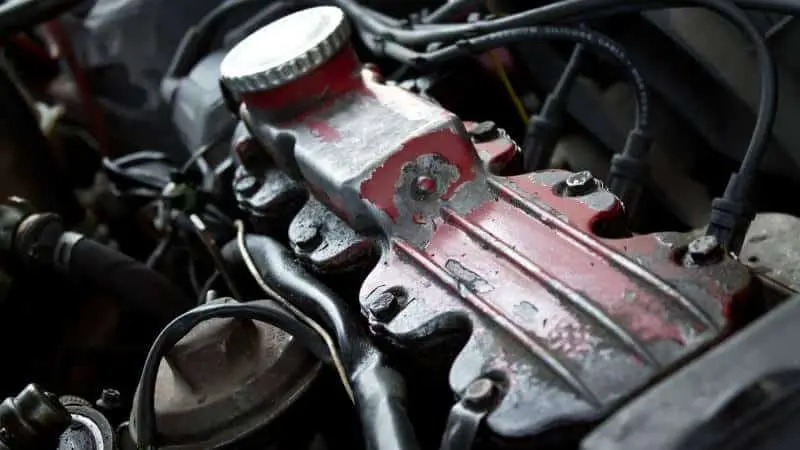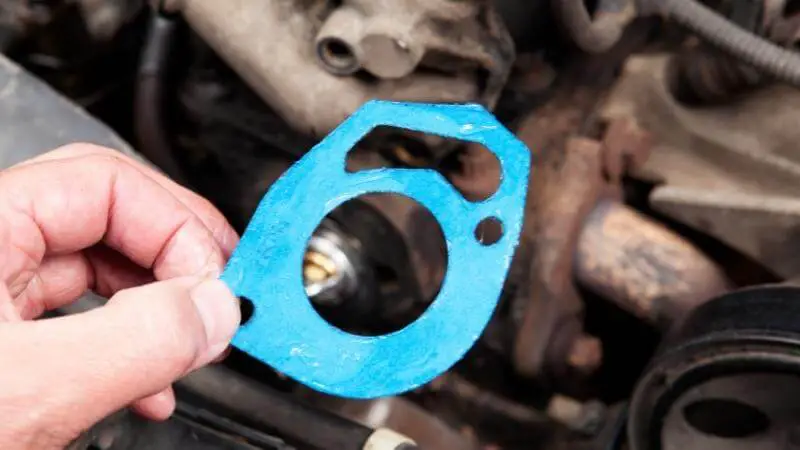A high-quality oil can improve engine performance in many ways. It provides lubrication for engine components, aids in heat release and engine sealing, and filters out impurities. It maximizes the engine’s performance and lifespan.
You can determine the health of your car engine by measuring its oil consumption. Engine oil burning too often is a sign of a more severe problem with the engine’s performance.
This article discusses the symptoms, causes, and troubleshooting of excessive oil consumption. Keep reading!
What is Normal Engine Oil Consumption?
Deciliters per 1000 km (dl/1000 km) is the unit for engine oil consumption.
It isn’t easy to pinpoint the exact point at which excessive motor oil consumption occurs. This depends on many factors, including the engine manufacturer. Passenger cars use between 0.05 to 3 dl per 1,000 km. Modern vehicles consume less oil than their older counterparts. This usually ranges from 0.05% to 1%. Utility vehicles can only consume 0.2% to 0.3% of the maximum oil limit.
Causes of Excessive Engine Oil Consumption
Many factors can cause excessive oil consumption. Let us discuss a few of them:
Cause 1# Old Engines

New engines have lower oil consumption. The engine components will begin to deteriorate over time. This causes tiny leaks, which means the engine will use oil more quickly. So, checking the oil consumption and the maximum oil burning is essential.
Cause 2# Poor Quality Oil
Different engines need to use specific lubricants. Higher oil consumption can result from not using the correct oil. Low oil viscosity can cause engine damage by increasing heat and friction. The replacement of a lubricant can also have an impact on oil consumption. Motor oil can burn if dirt and other debris build up over time. This can lead to increased oil consumption and engine damage.
Cause 3# Worn Seals Or Gaskets

Gaskets and seals are designed to withstand high temperatures and hot liquids. They can become damaged over time and cause engine oil leakages. This means that your engine will continue to lose oil while you drive. It would be best to top up your engine oil more often to avoid engine damage. It is inexpensive to improve engine performance and lower your long-term costs.
Cause 4# Damaged Piston Rings

Piston rings seal between the piston and cylinder wall. They can cause increased oil consumption if they get damaged. They allow the engine oil to pass through them before slowly entering the internal combustion chamber. This causes engine oil to become flammable and carbon deposits on the piston rings. Damaged piston rings can cause excessive oil burning, blue smoke, poor engine performance, and poor acceleration.
Symptoms of Excessive Engine Oil Consumption
Here are some symptoms that can be used to diagnose excessive engine oil consumption by the car engine:
Symptom 1# Low Compression
A compression test will inform you about engine components’ condition and performance, such as valve seats, piston rings, and valves. This requires that the compression tester be inserted into the cylinder. Disable fuel and ignition systems before performing the test. The engine must be hot because piston rings don’t seal well at low temperatures.
Over 100 psi per cylinder is the optimal compression. The difference between the highest and lowest readings should not exceed 10%.
Symptom 2# High Carbon Formation in Engine
Oil deposits can build up on the spark plugs and bottom of the valves. This means that oil is entering the combustion chamber and burning away. We have already discussed that high-carbon formation is often caused by inadequate engine oil or damaged piston rings.
Symptom 3# Blue Smoke
The engine oil is burning away in the combustion chamber when it turns to blue or grey smoke. Blue smoke can be caused by leaking piston rings or damaged cylinder walls. A qua
lified technician should inspect the area if you notice a pattern of blue smoke. Only thorough testing can help you pinpoint the problem.Symptom 4# Coolant Deterioration
Coolant deterioration occurs when engine oil comes in contact with the cooling system. The mixture of oil with coolant can cause excessive oil consumption. It can affect the coolant’s properties, such as its color and clarity.
Troubleshooting Excessive Engine Oil Consumption
Let’s quickly summarize the causes, the consequences, and troubleshooting for major oil consumption:
| S. no. | Causes | Consequences | Troubleshooting |
| 1. | Low-quality oil | Increased oil waste High carbon formation Engine contamination Increased wear on friction parts Diminution in the quality and compression of fuel combustion Oil life reduced Oil seals lose their elasticity Engine failure | Replace the low-quality oil with the correct oil for your engine. |
| 2. | Oil emissions into the exhaust pipe. | Increased oil consumption.Turbine failure.Catalyst failure. | Replace the oil seals. Replace or repair the turbocharger. |
| 3. | Increased wear of the cylinder-piston group | Scraper ring increases oil pumping. Increased oil waste High carbon formation Coking rings | Restore technical condition. Replace the piston group of the cylinder. |
| 4. | Oil leakage through non-densities | An increase in oil consumption | Eliminate all leaks.Find out what caused the high pressure of gases in the crankcase. |
| 5. | Emissions of oil into the cooling systems | Increased oil consumption Coolant quality deterioration Heat transfer degradation The lubrication fluid is emitted into the atmosphere and oil properties are lost. | Repair the engine. |
| 6. | Loss of oil rings’ mobility | Scraper ring increases oil pumping; Increased oil waste High carbon formation With time, you will notice a decrease in power and throttle response. Increase in fuel consumption | Repair the engine. |
| 7. | Defective crankcase ventilation system | Increased oil waste High carbon formation Increased wear on friction parts Diminution in the quality and compression of the fuel combustion | Flush the crankcase ventilation system. |
| 8. | Seals for inoperative valves | Increased oil waste Possible valve burnout | Replace the valve seals Replace the guides as well as the valves. |
Bottom line
A more severe problem with your engine’s health is excessive oil consumption. WHEELSCRIBE recommends hiring professionals to assist you in identifying the source of your problem as soon as you spot it.
